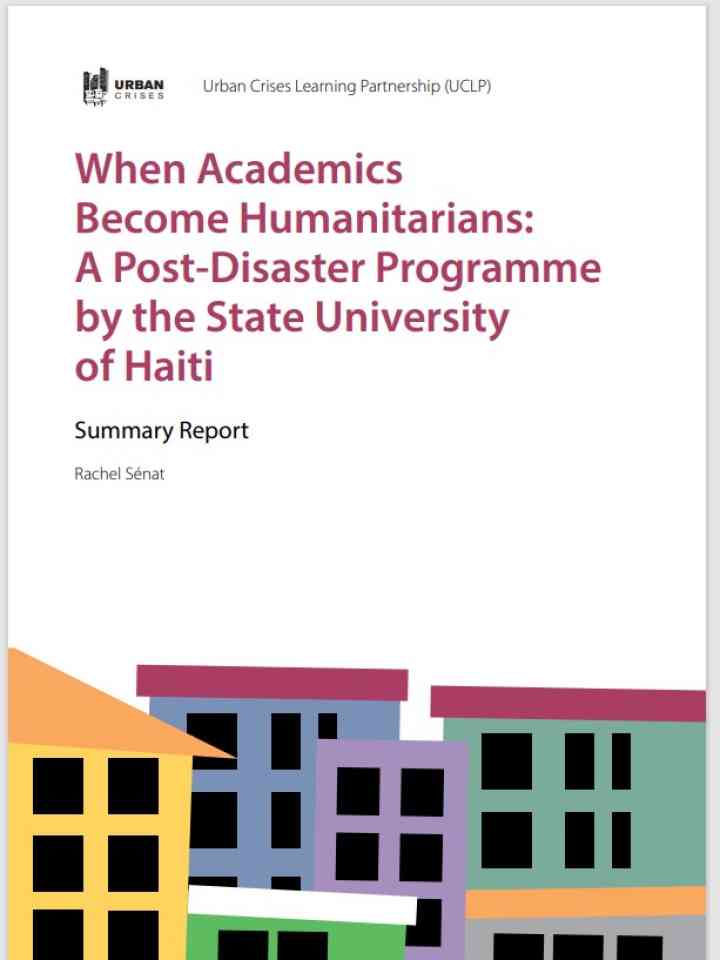When Academics Become Humanitarians: A Post-Disaster Programme by the State University of Haiti: Summary Report
The State University of Haiti (UEH - Université d'Etat d'Haiti) has been involved in post-disaster crisis management since 2004, when floods battered two small Haitian cities and left many rural communities in need of assistance. Later that year Hurricane Jeanne destroyed the city of Gonaïves, and UEH turned its attention to an urban area for the first time. More intervention in urban settings followed in 2008 when four cyclones hit the capital Port-au-Prince and other nearby cities. The major 2010 earthquake saw UEH once again responding to a crisis, but this time in both rural and urban areas.
This case study asks to what extent an academic institution can make a useful and valued contribution to post-disaster response. It describes the kind of work that UEH has brought to post-disaster crisis response, particularly in urban areas, and seeks to highlight how that work has contributed to promoting participation and resilience among affected populations. One of the questions it raises is whether an academic institution can play a unique role in post-disaster response due to its 'informal actor' status and perceived freedom from the interests of donors. The case study was informed primarily by interviews with key people leading the programme, including three UEH staff who teach and conduct research, and two students. In addition to these interviews, deskbased research looking at literature such as articles, reports, and manuals has helped to gain a broader view of UEH's post-disaster work in Haiti.
Explore further
